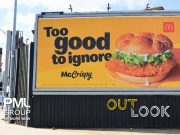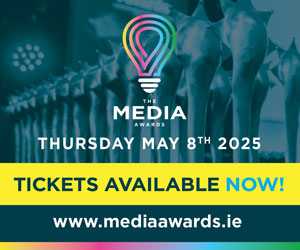With many advertisers and marketers focusing on how consumer behaviour might change post-Covid 19, Catrióna Campbell, managing director of The Public House, wonders if brands will change?
The majority of what I’ve read over the past 40 days is that the world we’re living in has changed and changed utterly. Headlines from Forbes talking about a ‘New World – How the world will be different after Covid-19’ and Fast Company’s ‘Six predictions for a New World Order’.
A recent article in Campaign lauded ‘The world has changed forever – are you ready?’. The predictions cover work, travel, education, healthcare, gaming, shopping, food, beauty – pretty much all aspects of our lives.
Amidst the hyperbole, I’d side with Mark Ritson, who has helpfully reminded us all that in the BSE crisis of the late 1980s, we all promised to turn vegetarian. Added to that is Bill Bernbach’s famous advice that it took mankind millions of years for our instincts to develop, and it will take millions more for them to change. In other words, when this all ends, it’s probably true that we’ll snap back to our usual selves, with largely the same behaviours, but with some new ones we’ve picked up along the way. Already fast-growing behaviours have been fast-tracked even more, such as the decline of cash and the rise of flexible working.
So, the world might not have changed utterly, maybe just a little faster…
But whilst the prophecies have largely focused on the longer-term impact on consumer behaviour, I’m more interested in the less deliberated topic – the impact this might have on brand behaviour.
Will brands ‘snap back’ too? Will brands return to pre-pandemic behaviours, or will this mark a real shift in how brands genuinely contribute to society. And I don’t mean empty jumping-on-the-brandwagon stuff like changing logos – pre Covid-19 the backlash to woke-washing had already begun.
But what we’ve seen during Covid-19 is many brands, and not just the much-lauded purpose brands, actually step up. They have used their power and influence to inform, to educate, to support, and to entertain. They have pivoted their business models within days to solve a humanitarian crisis.
We’ve seen companies like Aviation Gin, Diageo and Irish Distillers make sizable donations to the bartending communities (fundamental to their businesses) who were immediately impacted by the crisis. Insurance companies giving rebates. Supermarkets change their hours to ensure the most vulnerable can do their shopping. Gambling companies telling us to socially distance and stay safe. The likes of Uber giving free rides and free meals to key workers. And countless other examples, from every sector. Is this behaviour just a tactical response to a crisis, or could it mark a more enduring shift?
Should hotels donating their free rooms to the homeless not be something that they continue to do? Should it move from voluntary social responsibility or should it be the required cost of doing business?
The most daunting thing I’ve read on lockdown is that they estimate this global shutdown will have an estimated 5-6% reduction on global carbon emissions. This massive time out, this global standstill, has manifested itself in only a 5-6% reduction. Crucially, it is estimated by the scientists that we need a -7% impact year-on-year to actually save the planet.
What this clearly demonstrates is how genuinely colossal this challenge is going to be. The biggest battle we all face. The world needs brands to join this fight.
Can and will brands, who have been so vocal, so participative and so forward-thinking around Covid-19, continue to step up and inspire action? Will brands get involved in the biggest humanitarian crisis we face, or will it be too easy to sit out, with the excuse that it is too hard?
We’ve seen how responsive and agile big companies can be. The bigger question is whether they can be brave, and principled, understanding that a principle is only a principle if it costs you something. That’s the legacy that I want to see – what true brand purpose really means in the post Covid-19 era.





















